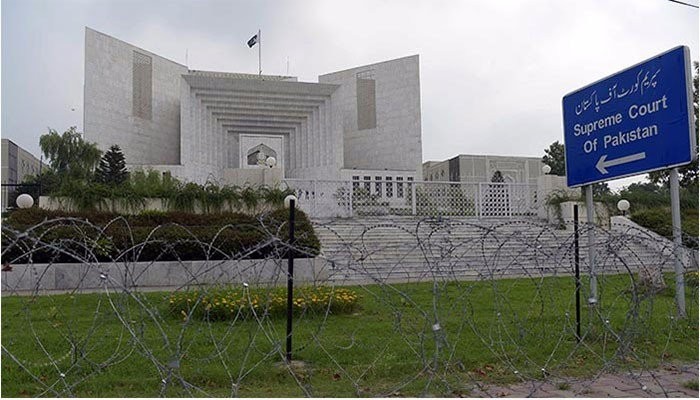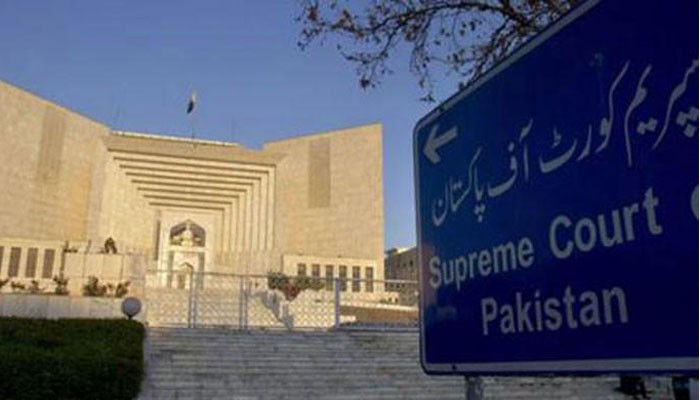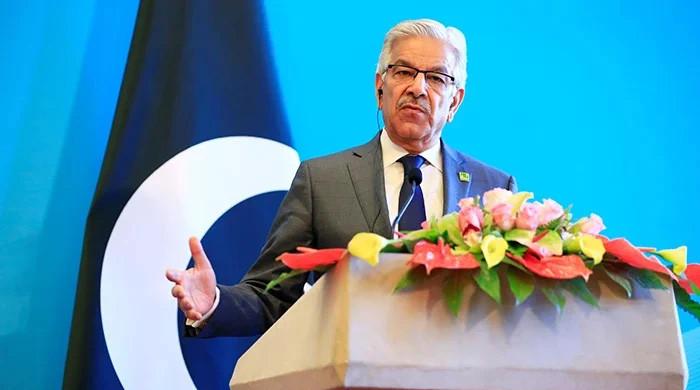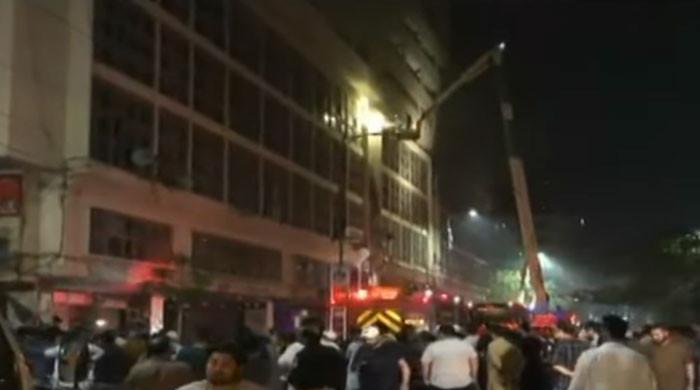SC to decide Imran, Jahangir disqualification cases together
The petition against the PTI leaders seeks their disqualification for non-disclosure of their assets and ownership of offshore companies
October 18, 2017
ISLAMABAD: A three-member bench of the Supreme Court, headed by Chief Justice Saqib Nisar, began hearing the disqualification case against Pakistan Tehreek-e-Insaf (PTI) Secretary-General Jahangir Tareen today.
At the start of hearing, the chief justice observed that they are examining both cases closely and will decide them together.
Chief Justice Nisar also remarked that he has to go to Sri Lanka on October 26 for a SAARC law conference.
The petition, filed by Pakistan Muslim League-Nawaz leader Hanif Abbasi, seeks Tareen and PTI Chairman Imran Khan's disqualification for the non-disclosure of their assets and ownership of offshore companies.
Tareen's counsel, Sikandar Mohmand, continued his arguments before the bench today.
Later, the hearing was adjourned until Thursday (tomorrow).
Speaking to the media while the hearing was under way, PTI Spokesperson Fawad Chaudhry, who is also a lawyer, said the case is in its last phase, and it should be hoped that the case will conclude before October 26.
At the last hearing on Jahangir's case on Tuesday, the chief justice had said that some of the details in the documents provided by Tareen's counsel are contradictory. "It seems as if the documents are fake."
He said that the "lease agreement does not show entire facts. You are using the land for farming. Do you want it to be investigated through the appropriate forum?"
In reply, Tareen’s legal counsel Sikandar Bashir Mohmand pleaded: "Please don’t say that they are fake documents. If Tareen is disqualified under Article 62 1(f) of the Constitution then its mark will stay forever."
The chief justice also said that Tareen acquired the agricultural land under lease but he earns income from it. Moreover, Tareen did not reveal aggregated agricultural income to the Election Commission of Pakistan (ECP).
Mohmand said that the ECP had asked for information regarding proprietary land only. “Tareen has hidden nothing in the documents submitted to the court.”
To this, the chief justice questioned Baksh and asked: “What should a person do if he does not own agricultural land but earns more than Rs10 billion on that land through lease? Should the person not share that information with ECP?"
“Our stance is that leased land’s owner should pay the tax.”
The chief justice termed the explanation as not satisfactory and said, “Even though Tareen had the lease of the land but the income was not declared.”
The law states that a person who earns money on agricultural land must pay taxes. Tareen should have paid five percent tax on the income earned from the land, the chief justice added.
“The question in front of the court is of integrity and integrity can be gauged through actions,” remarked the chief justice, adding Tareen did not declare his entire means of income to the court.
Tareen’s lawyer added that the court should let an appropriate forum give a verdict on the tax issues first.
Hanif Abbasi’s lawyer, Akram Sheikh, said that Tareen’s bad intentions can be seen from the fact that he hasn’t revealed documents of yield per acre or finance department. He has laundered money through the lease agreement, the lawyer added.
Hearing the petition against Imran, the bench noted discrepancies in the additional documents submitted by pertaining to his money trail.
The bench said even the additional documents have loopholes as they do not show if £100,000 were in the account of Niazi Services Limited for legal fees.
Responding to questions being raised on £100,000, Imran’s counsel, Advocate Naeem Bukhari, said the amount was earned abroad, therefore, no tax would have been levied on it.
However, speaking about the non-disclosure of the amount, Bukhari requested the court to be granted a chance to provide a new set of documents.
Questions were raised on £100,000 as details submitted by Imran earlier showed the balance of Niazi Services Limited account to be zero. However, later, the amount was shown in the account.
The previous documents showed that £100,000, which were in the account were spent on legal matters, therefore, Imran did not have any money to show regarding the bank details of Niazi Services Limited.














